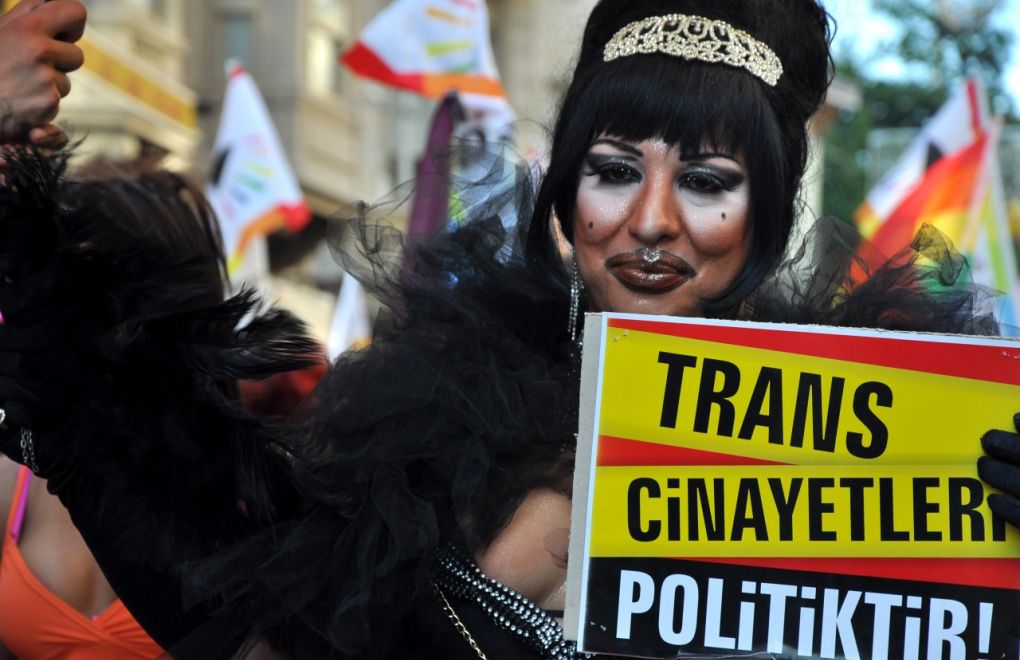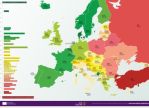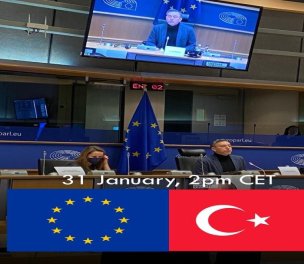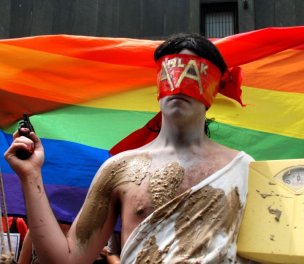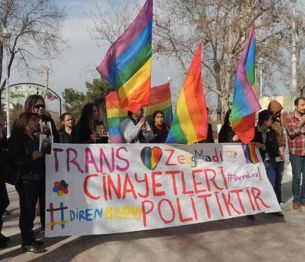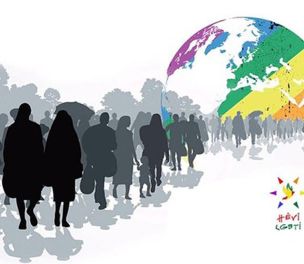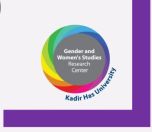* Photo: csgorselarsiv.org/Jivan Güner - "Trans murders are political"
Click to read the article in Turkish
The International Lesbian, Gay, Bisexual, Trans and Intersex Association (ILGA) Europe, an umbrealla organization of over 600 LGBTI+ groups from 54 countries in Europe and Central Asia, has released its Annual Review of the Human Rights Situation of Lesbian, Gay, Bisexual, Trans and Intersex People in Europe and Central Asia.
Covering events that occurred between January and December 2020, the review provides a snapshot of what happened during the year, at national, regional and international levels, and documents progress and trends regarding the human rights situation of LGBTI people.
The report shows an increase in the homophobic and transphobic rhetoric used by officials, adding that "there has been a resurgence of authorities and officials using LGBT people as scapegoats."
The review shares the following findings about Turkey:
'Political leaders spreading hate'
"A great number of hate speech incidents and campaigns took place again this year. In some instances, the government or public figures blamed LGBT people or gay men for the COVID-19 pandemic, and for spreading other illnesses. On 7 May, the European Union (EU) LGBTI Intergroup called out Turkey's political and religious leaders on spreading hate against LGBTI people and people living with HIV.
"Preceding the statement, the head of Turkey's Religious Affairs Directorate, imam Ali Erbaş, held a sermon focusing on COVID-19, saying that homosexuality 'brings illness.'
"In March, theologist Ali Rıza Demircan said on a mainstream news channel, that 'the homosexual relationships [...] should be banned in order to prevent the contagion of COVID-19. These are also banned by God':
"A homophobic social media campaign, in support of imam Erbaş was launched on Lesbian Visibility Day. Several leading politicians stood up in support of the imam, including President Erdoğan, his Spokesman and Chief Advisor İbrahim Kalın, Zehra Zümrüt Selçuk, the Minister of Family, Labour and Social Services, and Parliamentary Human Rights Investigation Commission Spokesman, AKP's Van Deputy Osman Nuri Gülaç. A hate campaign on Twitter targeted LGBTI people, in support for the Imam.
'Lifting of bans is positive, but...'
"There has also been a substantial rise in hate speech, both from official sources, in the media and online. The trend of politicians verbally attacking LGBTI people has grown sizeably and spread in countries including Albania, Azerbaijan, Bosnia and Herzegovina, Bulgaria, Czechia, Estonia, Finland, Hungary, Italy, Kosovo, Latvia, Moldova, North Macedonia, Poland, Russia, Slovakia, and Turkey; and religious leaders have propagated hate-speech in Belarus, Greece, Slovakia, Turkey and Ukraine, many of them directly blaming LGBTI people for COVID-19.
"Hate speech on social media has risen in Belgium, Bulgaria, Croatia, Czechia, Malta, Montenegro, Russia and Turkey, and in the general media in Slovenia and Ukraine, while hate speech is an ongoing issue in Georgia, Ireland, Netherlands, North Macedonia, Portugal, Romania, Slovakia, Spain and the UK. Many courts and governmental institutions are beginning to have a larger awareness of this growing trend, and beginning to talk about regulating online hate speech, including on the EU level.
"In Russia activists were detained; in Turkey there are ongoing court cases against peaceful Pride marchers and other cases against human rights defenders, and in Ukraine the Odessa Pride event was attacked.
"On a positive note, courts struck down bans on three Pride marches in Turkey last year.
'Restrictions, violence, smear campaigns...'
"Overall there has been a crackdown on democracy and civil society, and not just in Poland and Hungary, which made all the headlines in 2020. We see this in Turkey, Azerbaijan, and across Central Asia.
"The European Commission (EC) continued to highlight the very serious situation for LGBTI people in Turkey, citing the restrictions on LGBTI NGOs, violence targeted at LGBTI organisations, smear campaigns and hate speech by political and religious leaders, as well as the ongoing need to lift blanket bans on LGBTI events, adopt an anti-discrimination law that is inclusive of SOGI, and amend the hate-crime law to include SOGI. It also noted that Turkey has an extremely high murder rate of trans people.
"In January 2020, the 22 members of the Assembly signed a written declaration insisting that The Turkish authorities must drop all charges against LGBTI activists who participated in Pride.
"Similarly, following her country visit to Turkey, the Commissioner for Human Rights of the Council of Europe issued a report on 19 February stating that Turkish authorities must restore judicial independence and stop targeting and silencing human rights defenders." (EMK/SD)




